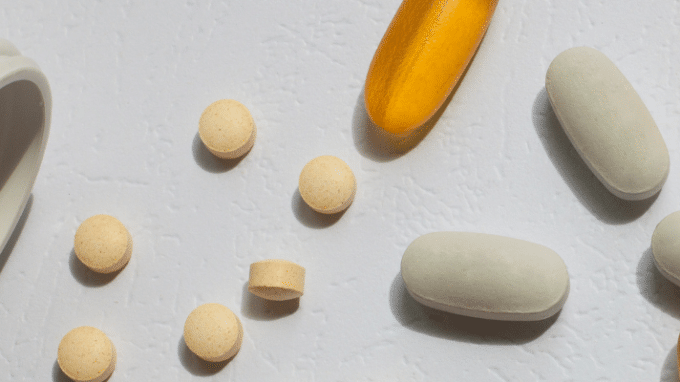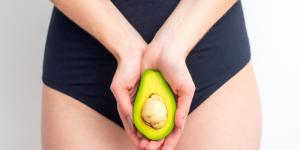Experts estimate that about 10 percent of couples experience trouble conceiving and keeping a pregnancy to term. Among the contributing factors are diet and lifestyle, and adjustments to these directly affect fertility. When couples are trying to conceive, experts recommend they use prenatal vitamins prior to and during the pregnancy period.
What Are Prenatal Vitamins?
Prenatal vitamins are essential micro and macro-nutrients necessary for conception and healthy pregnancy. They are supplements made specifically for people trying to conceive and pregnant women. Prenatal supplements promote fetal development and improve the mother’s general health.
What Is the Effect of Prenatal Vitamins on Fertility?
Of the incidents of trouble conceiving, about a third is caused by male infertility. Male infertility is brought about by anomalies in the morphology of the sperm, as well as the sperm’s motility and count.
Men can do their part when trying to get their partner pregnant by taking fertility vitamins. While these are not prenatal vitamins like women consume, there are options that can help improve the quality of sperm. As a result, males at risk of impotence are advised to take foods rich in antioxidants, vitamin E, vitamin C and L-glutathione. Examples of such foods include cruciferous vegetables, ginger, garlic, onions, soybeans, eggs, avocados, mangos, peanuts and almonds.

Just like L-glutathione, vitamin E contains powerful antioxidants that can help eliminate harmful substances from the body and prevent inflammation.
Another fertility vitamin men should aim to take when trying to conceive is vitamin C. It can help protect sperm from damage and improve the quality and quantity of it as well. When the man’s sperm is healthy, there is a lower risk of birth defects once a pregnancy has been achieved. Vitamin C can be taken in supplement form and can be obtained through various foods, including citrus fruits and green, leafy vegetables.
For females, vitamins play a role in menstruation, egg production and maturation and thyroid function. A consistent intake of B vitamins increases the chances of ovulation, especially in women with ovarian disorders like PCOS.
Recent studies reveal that women on prenatal vitamins as an adjunct therapy to fertility treatment had a higher chance of conception. Additionally, prenatal supplements ensure that the woman has a healthy pregnancy and carries it to term. Prenatal vitamins reduce the chances of miscarriages and congenital abnormalities.
When Should One Start Taking Prenatal Vitamin?
There is no ideal period for one to start taking prenatal supplements; however, doctors recommend that a couple trying to conceive should start taking the vitamins before conception. The reason is that most females know that they are expectant by week six. By this time, most vital organs are already formed. Therefore, taking prenatal vitamins at this stage will not significantly affect organogenesis, which is the most crucial part of the gestational period.
What Is the Importance of Taking Prenatal Vitamins?
1. Prevention of Congenital Defects
The various micro and macro-nutrients play a crucial role in fetal development. Recent studies linked vitamin B12 and folic acid deficiency with neural tube defects like anencephaly (absence of a portion of the brain or whole brain) and spina bifida. Anencephaly is a severe congenital disability that is fatal.
Additionally, thiamine supplementation reduces the risk of developing autism. Thiamine plays a significant role in fetal brain and nervous system development.
Conversely, excessive intake of vitamin A during pregnancy is associated with congenital disabilities.
2. Promotes Overall Health of the Mother

Omega-3 and omega-6 fatty acids (DHA) aid in fetal brain development. The dietary requirement of DHA in pregnant women is about 250 milligrams per day.
Iron is an essential precursor in the formation of the hemoglobin protein necessary for fetal blood. Pregnant women need to supplement their iron intake due to increased oxygen demand. Iron supplementation minimizes the propensity to develop iron-deficient anemia. Additionally, iron deficiency causes premature births and low birth weight in babies.
High blood pressure and pre-eclampsia are life-threatening conditions to both the mother and the newborn. According to specialists, potassium supplementation aids in mitigating hypertensive cases in women at risk of developing pre-eclampsia. Note that pre-eclampsia is the leading cause of emergency delivery of premature babies.
Iodine is crucial in the physiological function of the thyroid gland in the mother. Hyperthyroidism or hypothyroidism negatively affects a growing fetus. However, not all prenatal vitamins contain iodine. Therefore, ask your physician about the supplements that contain iodine. Alternatively, you may consider supplementing your diet with foods that are rich in iodine.
3. Minimizes Incidence and Severity of Morning Sickness
Recent research has shown reduced incidence and severity of morning sickness in pregnant women on vitamin B6 supplements.
4. Enhances Both the Mother’s and the Fetus’s Immunity
Prenatal supplements contain vitamins and mineral salts vital in boosting both the mother’s and the baby’s immune function. Examples of such vitamins include vitamins B, C, D and E. Also, they contain micro and macro-nutrients like zinc, magnesium, manganese, proteins and carbohydrates.
Conclusively, prenatal vitamins are vital before and during pregnancy, particularly for couples with trouble conceiving. It would be extremely beneficial if you considered visiting a specialist to inquire about the best prenatal vitamin suitable for you.




